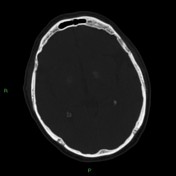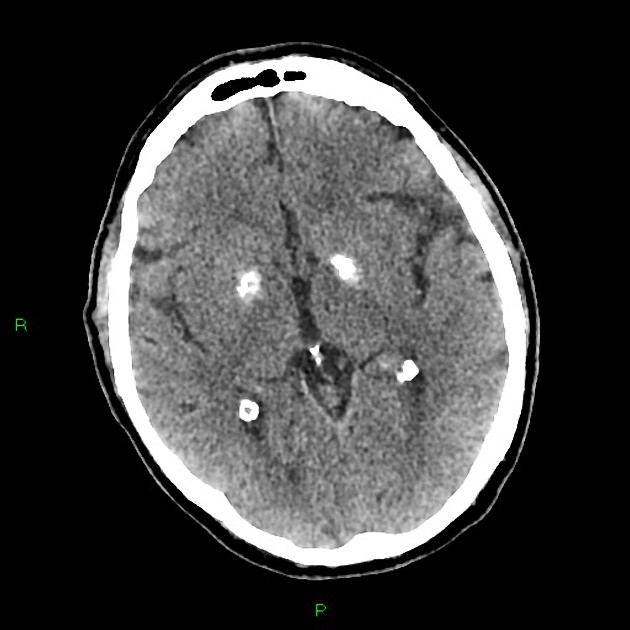Presentation
Known paranoid schizophrenia, worsening symptoms over months. Admitted due to persistent delusions, low mood and cognitive impairment. No known significant family history.
Patient Data
Age: 50 years
Gender: Male
From the case:
Fahr disease




Download
Info

Coarse bilateral calcifications in region of globus pallidus.
No calcifications in cerebellum or cortex.
No acute intracranial abnormalities.
Case Discussion
Although basal ganglia (and specifically globus pallidus) calcification is a relatively common finding, given this patient's psychiatric background and subtle neurological findings (choreic gait) it was felt that Fahr syndrome was a likely diagnosis.




 Unable to process the form. Check for errors and try again.
Unable to process the form. Check for errors and try again.